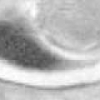Free Online Productivity Tools
i2Speak
i2Symbol
i2OCR
iTex2Img
iWeb2Print
iWeb2Shot
i2Type
iPdf2Split
iPdf2Merge
i2Bopomofo
i2Arabic
i2Style
i2Image
i2PDF
iLatex2Rtf
Sci2ools
103
click to vote
ICCV
2007
IEEE
2007
IEEE
Embedded Profile Hidden Markov Models for Shape Analysis
An ideal shape model should be both invariant to global transformations and robust to local distortions. In this paper we present a new shape modeling framework that achieves both efficiently. A shape instance is described by a curvature-based shape descriptor. A Profile Hidden Markov Model (PHMM) is then built on such descriptors to represent a class of similar shapes. PHMMs are a particular type of Hidden Markov Models (HMMs) with special states and architecture that can tolerate considerable shape contour perturbations, including rigid and non-rigid deformations, occlusions, and missing parts. The sparseness of the PHMM structure provides efficient inference and learning algorithms for shape modeling and analysis. To capture the global characteristics of a class of shapes, the PHMM parameters are further embedded into a subspace that models long term spatial dependencies. The new framework can be applied to a wide range of problems, such as shape matching/registration, classificati...
Computer Vision | Curvature-based Shape Descriptor | ICCV 2007 | Ideal Shape Model | Shape Contour Perturbations | Shape Instance | Shape Modeling Framework |
Related Content
| Added | 14 Oct 2009 |
| Updated | 30 Oct 2009 |
| Type | Conference |
| Year | 2007 |
| Where | ICCV |
| Authors | Rui Huang, Vladimir Pavlovic, Dimitris N. Metaxas |
Comments (0)

